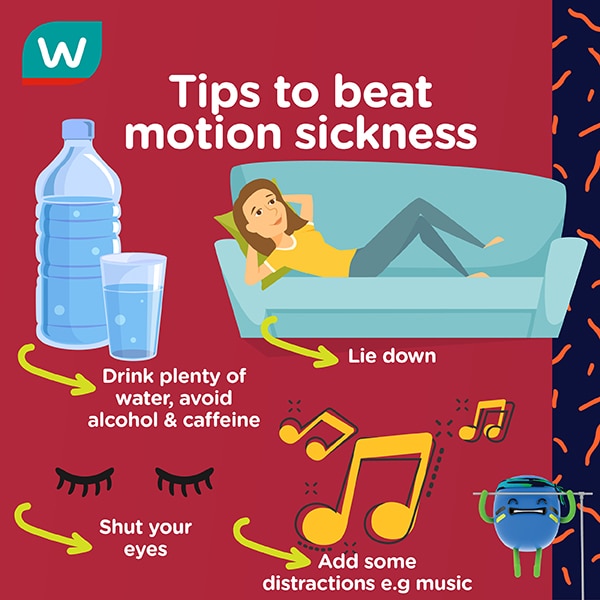Motion sickness takes the fun out of a holiday. Any type of travel — automobile, plane, train, or boat — may bring it on, sometimes all of a sudden. Keep reading to learn more about this condition and you may actually be able to conquer it for good.
#1 What causes it?
You get motion sickness when your body’s sensory organs send mixed messages to your brain. For instance, you are on a moving cruise, your eyes see one thing, your muscles feel another, and your inner ears which control balance and posture, sense something else. Anybody can get motion sickness, but people who are prone to experience the symptoms of motion sickness include children and pregnant women.

#2 Symptoms
Motion sickness can strike without warning and cause symptoms ranging from mild nausea to dizziness, sweaty hands, and vomiting. Other common symptoms include:
- Drooling
- Shallow breath
- Loss of appetite
- Increase in saliva production
- Pale skin
- Headache

#3 Tips for immediate relief
For most people, symptoms usually don’t last long. You certainly can take medications to relieve those symptoms. But if you’d like to try overcoming motion sickness for good, here are some simple things that you can do to help reduce the symptoms almost immediately.
- Drink plenty of water, avoid alcohol & caffeine
- Lie down
- Shut your eyes
- Add some distractions e.g. music












